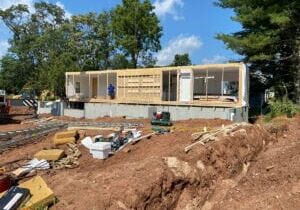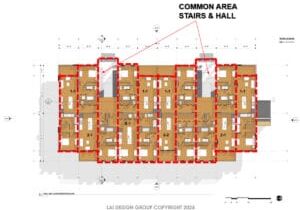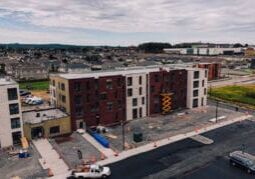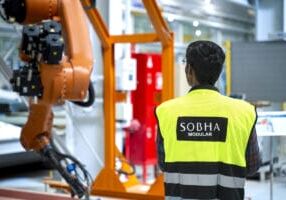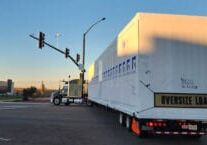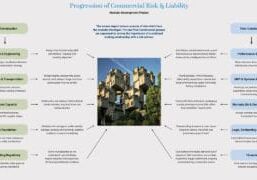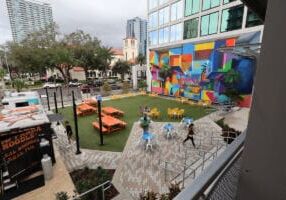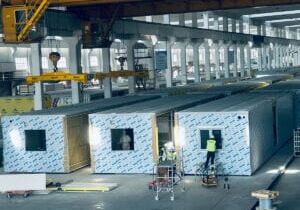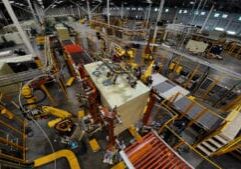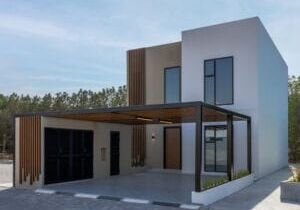Turkish Manufacturer Has Long History of Responding to Disasters
On February 6, 2023, a 7.8 magnitude earthquake rocked southern and central Turkey, killing over 2,300 people and injuring 10,000 more. In the immediate aftermath, one company stepped up to provide temporary housing for those affected by the damage - DORCE Prefabricated Building and Construction. The company is currently producing 320 modular units a day for the continuing relief effort, and, even six months later, those units are going to the victims in the form of permanent housing.
DORCE responded with the force of its huge production capacity, dedicating all their abilities to producing emergency houses for those displaced by the disaster with help from AFAD (Disaster and Emergency Management Presidency of Turkish Republic). They also sent equipment such as excavators and cranes to help with search and rescue efforts, redirected their construction teams to the area, and provided winter clothing such as coats, boots, and sweaters. Thanks to the company’s administrative staff, workers, subcontractors, subcontractor workers, and material suppliers they were able to respond at this critical time.
Their current modular unit is 21 square meters and includes a living room, bedroom, kitchen, and toilet/shower area. The specialized construction of the base and roof contributes to the strength of the unit. Trapezoidal sheet metal protects the inside from outdoor conditions, while the base keeps the unit stable on the ground. Units used for temporary housing can be dismantled and shipped to other locations to provide housing for other projects.
Not only are the modular units strong, but they’re green as well. They are designed to be energy efficient, and since they are made of non-combustible materials, they’re fire resistant too. Units are transported by land, rail, or by air, and are designed to be “plug and play” with the site utilities (currently supplied by AFAD). Unit construction includes the electrical, telecommunications, plumbing, and heating/cooling systems. They can be assembled in 24 hours after arrival at the assembly yard.
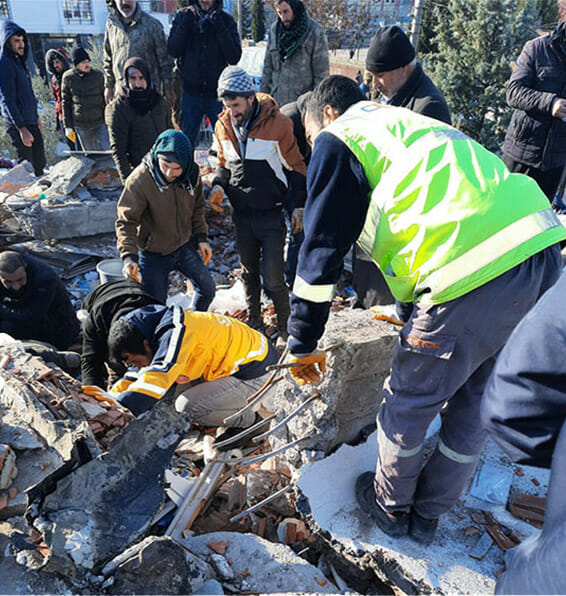
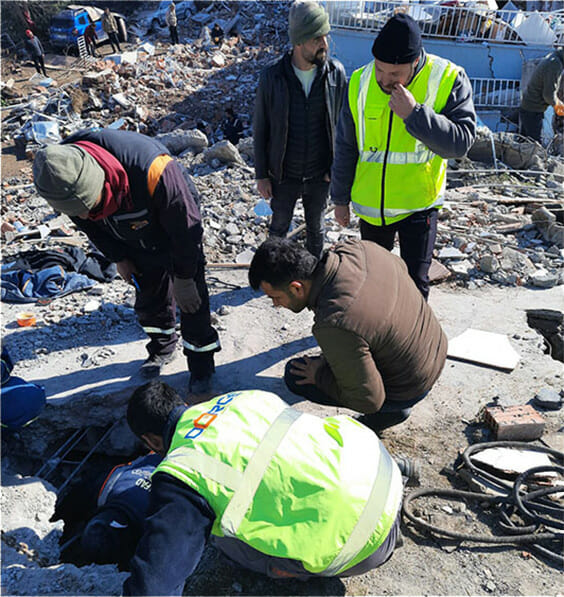
A History of Responding to Emergencies
Looking over the company’s history, this kind of response is the norm, rather than the exception. DORCE has a rich history of responding to disasters in the area, almost from its inception in the early 1980s. Due to its proximity to one of the most active earthquake zones in the world, they have invested a lot of time into the design and production of earthquake- resistant modular structures.
Geldimurat Annageldiyev, who has worked for DORCE since 2003 and is their current Deputy General Manager responsible for Global Business Development, says the company’s first involvement in earthquake relief missions came in 1999 when a 7.6 magnitude quake hit the city of İzmit, Kocaeli Province of Turkey. In three months, the company manufactured modular housing for 20,000 people.
Then in 2003, they responded to a quake in the city of Bam, Iran, providing temporary emergency accommodation units that were later transferred to different regions of the country to be used as dormitory housing for students.
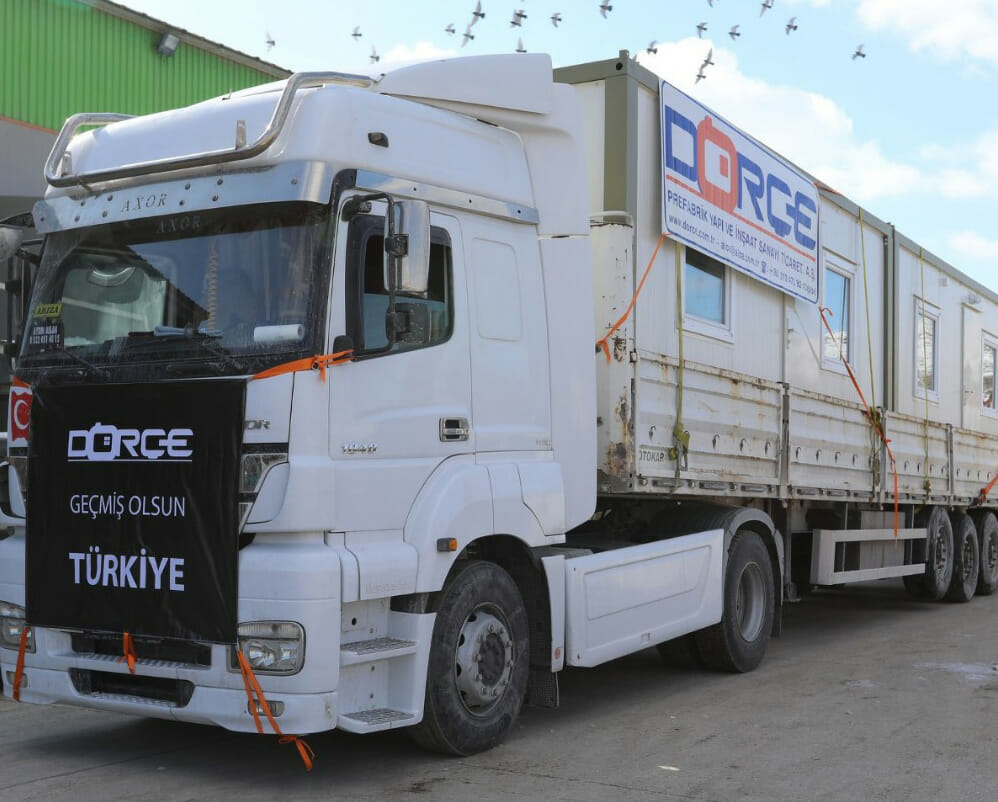
In 2011, 3,000 modules were provided over a 45-day period to house more victims in Ercis and Van, Turkey.
The 2023 earthquake affected some of the most densely populated cities in the country: Hatay, Adıyaman, Kahramanmaraş and Malatya. The most affected people were those living in substandard housing in informal settlements. It also greatly affected several industries in the country, including textiles, automotive, technology, manufacturing, and construction.
The Turkish government recently announced a new housing development program to help those affected by this year’s event. It involves the construction of 650,000 new homes in the next five years in the affected areas. All homes will be built to the highest earthquake safety standards and will be located in safer areas of each city.
The company has gained a reputation for providing a quick response with a large volume of modular structures to accommodate and house people,
either temporarily or permanently. With units specially designed for easy transportation and assembly, they are being looked to as a resource for emergency responses around the world.
International From the Start
DORCE started out as a manufacturer of minor steel construction materials like chairs, doors, windows, and furniture. Within about two years they had expanded to light gauge steel and container buildings, modular units, and pre-engineered heavy steel structures. Throughout its history, its performed projects in over 60 countries, all from its 100,000 square meter manufacturing hub in Ankara, Turkey. The facility is one of the largest active manufacturing plants in the world and has been pumping out 180,000 square meters of prefabricated buildings or 5,000 modular units per month for decades without a slowdown.
The speed with which they are able to produce these units is thanks to the use of modern construction technology, including building information modeling (BIM), Modern Methods of Construction (MMC), Design for Manufacturing and Assembly (DFMA), and Designing for Industrialized Methods of Construction (DIMC). In particular, they rely on BIM to increase the efficiency of the construction process, reduce waste, and to improve the quality and lifespan of the structures.
Their goal has always been to expand internationally, and they’ve done that in a unique way. “As the first step to being successful in international markets, we learned to appreciate and respect the culture and attitude of the countries where we work. Through time, we truly understood the nuances of different cultures, hiring people from around the globe. Today we proudly say that more than 20 nationalities are working in DORCE globally,” says Annageldiyev.
With the growing popularity of modular construction, both in Turkey and other countries, DORCE’s services are in demand, and they are looking to expand their operations accordingly. They already have a history of working with many US and Canadian companies and the military, including the US Army, and NATO in Iraq, Afghanistan, Qatar, and Somalia. They’ve also provided housing for mining companies, modular embassy structures for the US government, and a mass housing project for different US-based companies.
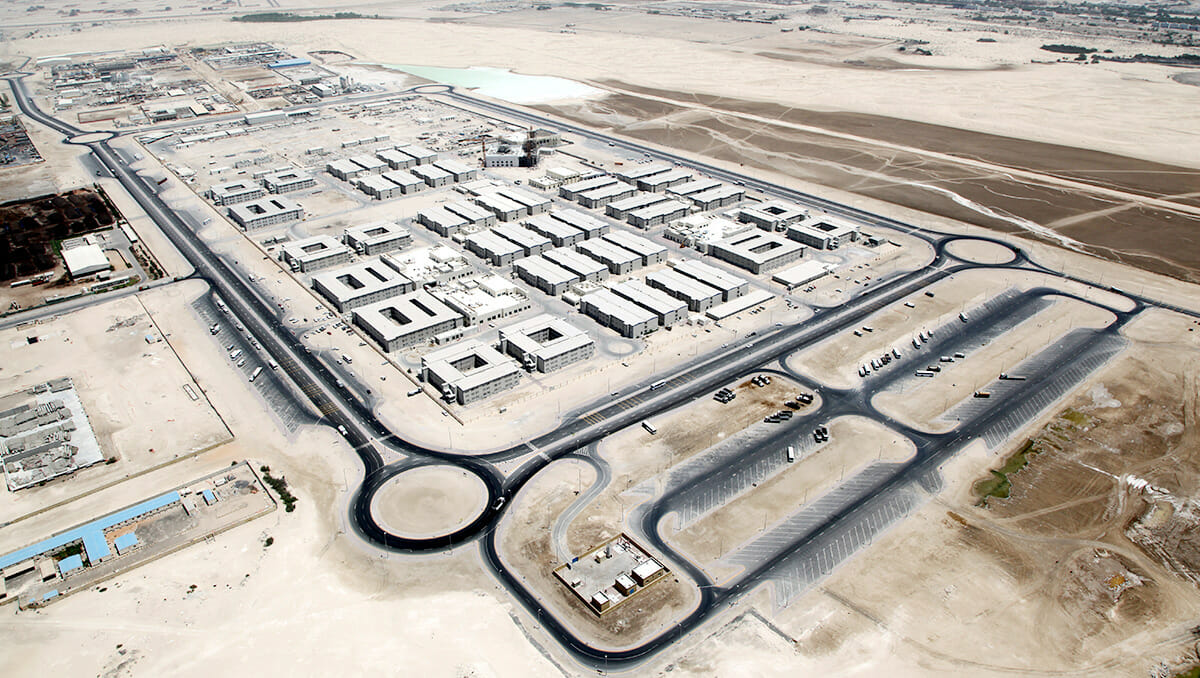
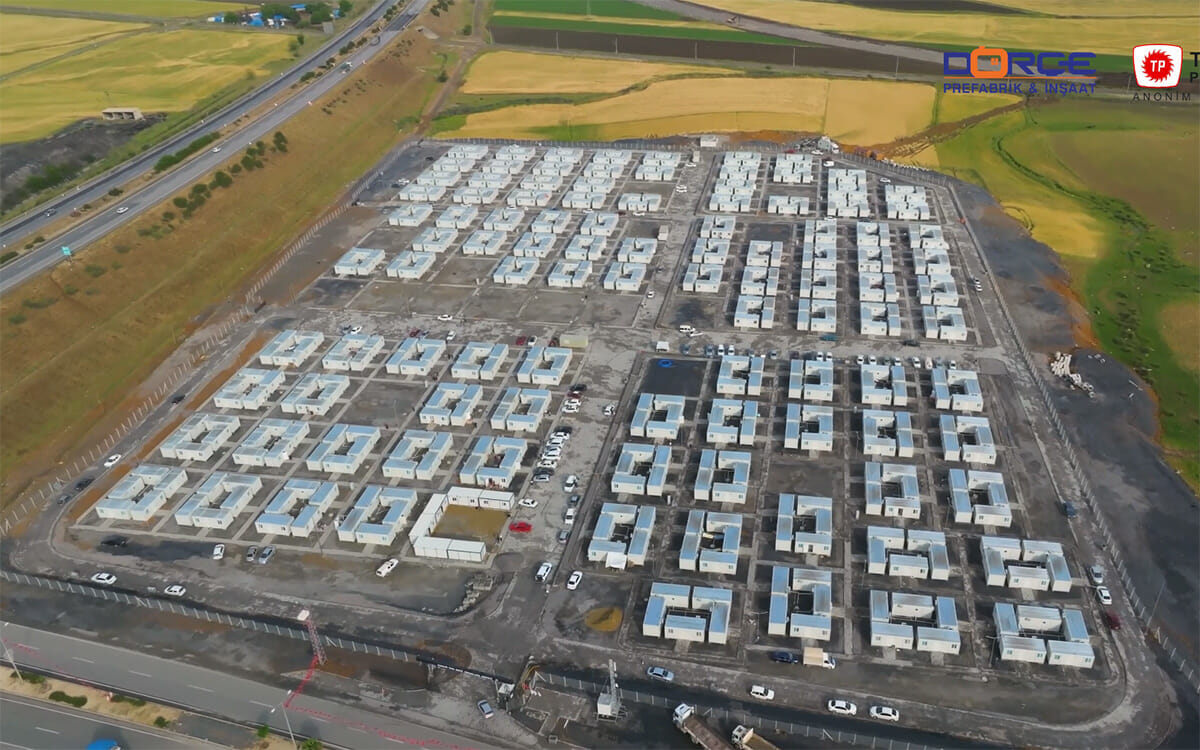
Emergency housing communities manufactured by DORCE
To cement their place in the American market, they’re looking to produce a high-rise volumetric project in the next 5-10 years.
Annageldiyev believes the timing is right, citing increased housing demand in urban areas, the rising cost of traditional construction methods, favorable government policies, a focus on safety and quality, and the rising demand for sustainable volumetric modular buildings. He also sees a great opportunity providing both temporary and permanent housing for the homeless.
Their focus, understandably, is on providing modular production for earthquake prone areas, like California. Their experiences working with these disasters in their own country have them poised to provide a great deal of insight to the US market. They’ve already invested heavily, with plans to open manufacturing facilities in the US and Canada and create partnerships with companies there.
About the Author: Dawn Killough is a freelance construction writer with over 25 years of experience working with construction companies, subcontractors and general contractors. Her published work can be found at dkilloughwriter.com.
More from Modular Advantage
AoRa Development Aims for New York’s First Triple Net Zero Building Using Modular Methods
More cities are providing funding for newer infrastructure projects as long as they meet sustainability requirements. This is how modular can fit the bill, thanks to its lower waste production.
Developers and Designers: Lessons Learned with Modular Design
Modular construction is attractive to many developers because sitework and module construction can occur simultaneously, shortening the schedule and reducing additional costs.
UTILE: Putting Modular Building on a Fast Track
In Quebec, UTILE is taking the lead in creating affordable modular buildings to help decrease the student housing shortage. During the process, the company discovered what it takes to make the transition to modular building a success.
Sobha Modular Teaches Developers How to Think Like Manufacturers
With its 2.7 million square foot factory in UAE, Sobha Modular is bringing both its high-end bathroom pods to high-end residences to Dubai while developing modular projects for the U.S. and Australia.
RoadMasters: Why Early Transport Planning is Make-or-Break in Modular Construction
In modular construction, transportation is often called the “missing link.” While it rarely stops a project outright, poor planning can trigger costly delays, rerouting, and budget overruns.
Navigating Risk in Commercial Real Estate and Modular Construction: Insights from a 44-Year Industry Veteran
Modular projects involve manufacturing, transportation, and on-site assembly. Developers must understand exactly what they are responsible for versus what they subcontract. Risk advisors should research the developer’s contractors, subcontractors, and design-build consultants—especially the modular manufacturer.
Art²Park – A Creative Application of Modular and Conventional Construction
Art²Park is more than a park building—it’s a demonstration of what modular construction can achieve when thoughtfully integrated with traditional materials. The use of shipping containers provided not only speed and sustainability benefits but also a powerful structural core that simplified and strengthened the rest of the building.
Building Smarter: A New Standard in Modular Construction Efficiency
Rising material prices, labour shortages, expensive financing and tightening environmental rules have made conventional construction slower, costlier, and more unpredictable. To keep projects on schedule and within budget, builders are increasingly turning to smarter industrialized methods.
Resia: Breaking All the Rules
Resia Manufacturing, a division of U.S.-based Resia, is now offering prefabricated bathroom and kitchen components to industry partners. Its hybrid fabrication facility produces more precise bathroom and kitchen components (modules) faster and at lower cost than traditional construction. Here’s how Resia Manufacturing does it.
How LINQ Modular Innovates to Bring Modular To The Market in the UAE and Beyond
LINQ Modular, with an office and three manufacturing facilities in Dubai, is a modular firm based in United Arab Emirates. The company is on a mission: to break open the housing and construction markets in the Gulf Cooperation Council (GCC) area with modular.

